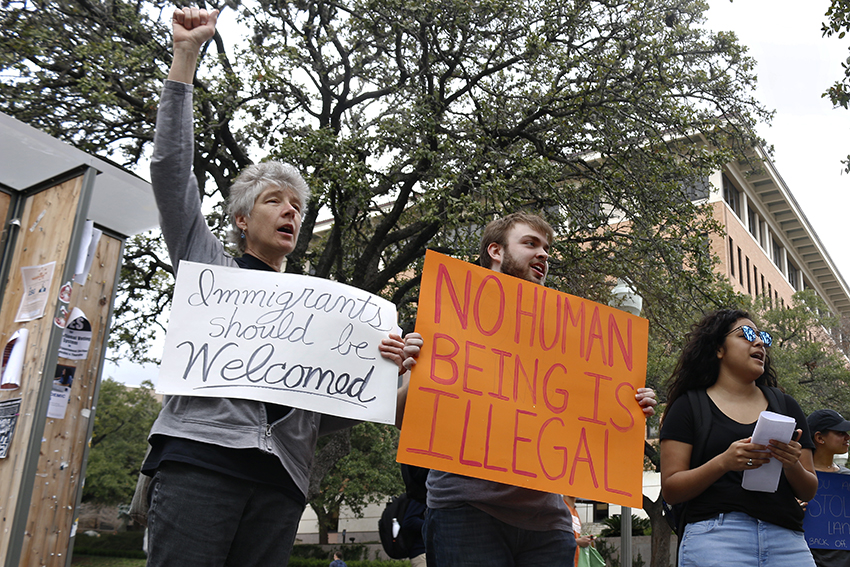A bill filed by state Rep. Kyle Biedermann could take away undocumented students’ ability to pay in-state tuition at Texas colleges and universities.
If it passes, the cost of tuition for undocumented students at UT could quadruple, jumping from just over $10,000 to almost $40,000.
House Bill 413 would repeal an earlier state law, the first of its kind in the nation that passed 176–5 across both chambers in 2001. Under the current law, United States citizens can establish residency and pay in-state tuition after living in Texas for one year. People without documentation could do the same, provided they signed an affidavit stating they would apply for legal status as soon as they were eligible.
In recent years though, the law has been the subject of attacks from Republicans in the House and Senate, including Lt. Gov. Dan Patrick, who leads the upper chamber.
The new bill specifically goes after residency requirements, which control whether someone can pay in-state tuition, for undocumented students. Students without legal status would not be eligible to apply for Texas residency for tuition purposes, and institutions would have the right to revoke residency status to those who previously received it.
“I am proud to fight for the taxpayer,” Biedermann, R-Fredericksburg, said in a statement after filing the bill in November. “Magnet policies that benefit illegal immigrants hurt citizens and those who immigrated here legally. We must remove these magnets and protect our border.”
A similar bill was filed during the 2017 legislative session, though it never got a committee hearing. Another received a hearing in 2015 but did not get enough votes to be sent to the full Senate.
Public health junior Pili Gyasi, the president of Latino advocacy group Jolt Texas at UT, said the bill would make higher education in Texas unattainable for many undocumented students who can barely afford in-state tuition costs.
“To a Dreamer and a (Deferred Action for Childhood Arrivals) recipient, this is more than a simple bill,” Gyasi said. “To them this is their livelihood to be able gain an education, to stay in school, to get access to more jobs down the road because in this country, the likelihood of having a job that can provide for you is decreasing if you don’t have a college degree.”
Former Republican Gov. Rick Perry, who signed the original law, told Politifact in 2015 that it made sense in 2001. No longer governor, he said it was up to the Legislature to decide “whether this is right for Texas or not.”
Law professor Denise Gilman, the director of UT’s immigration clinic, said she is unsure if the state would be able to bar recipients of DACA, which protects them from deportation but does not necessarily give clear-cut legal status, from receiving in-state tuition. UT does not gather data regarding immigration status of attendees.
Separately, Gilman said she thinks the bill might not be able to pass legal muster in the federal courts and that it is likely to bring several lawsuits if it is signed into law.
“I’m not sure they can just define away residency for an individual who has lived here maybe almost their whole life just based on their immigration status,” Gilman said.





















